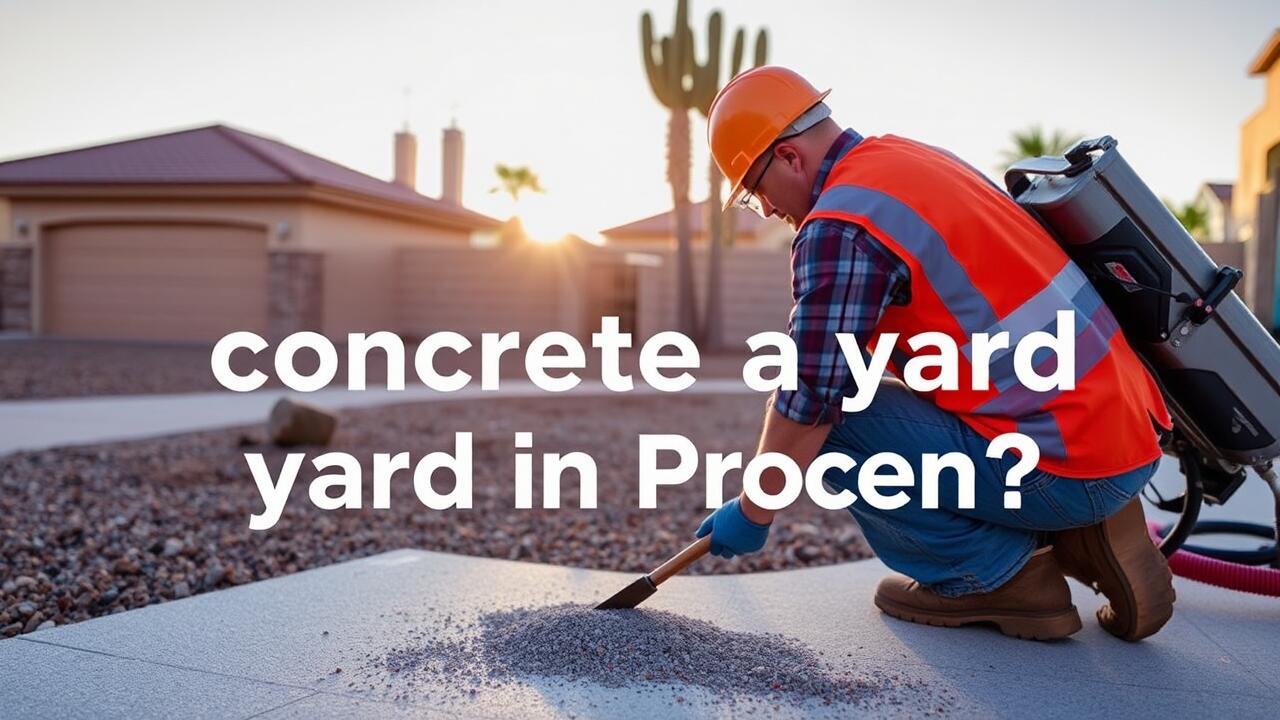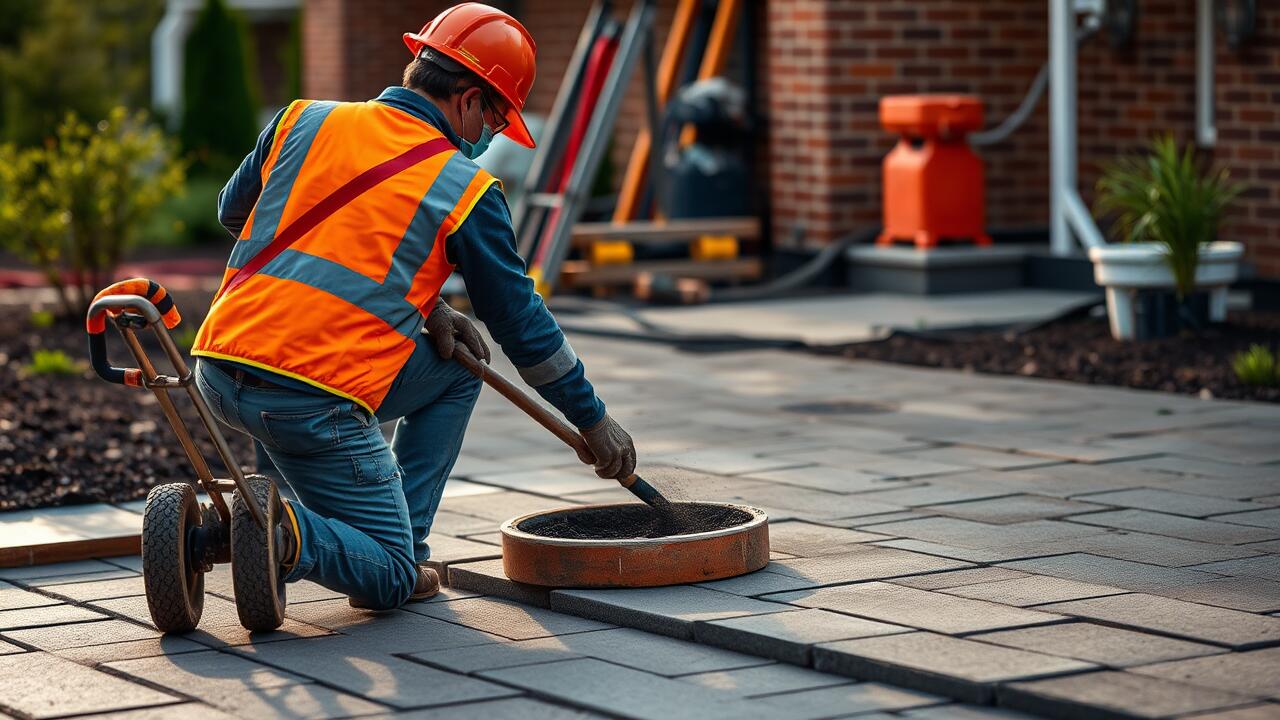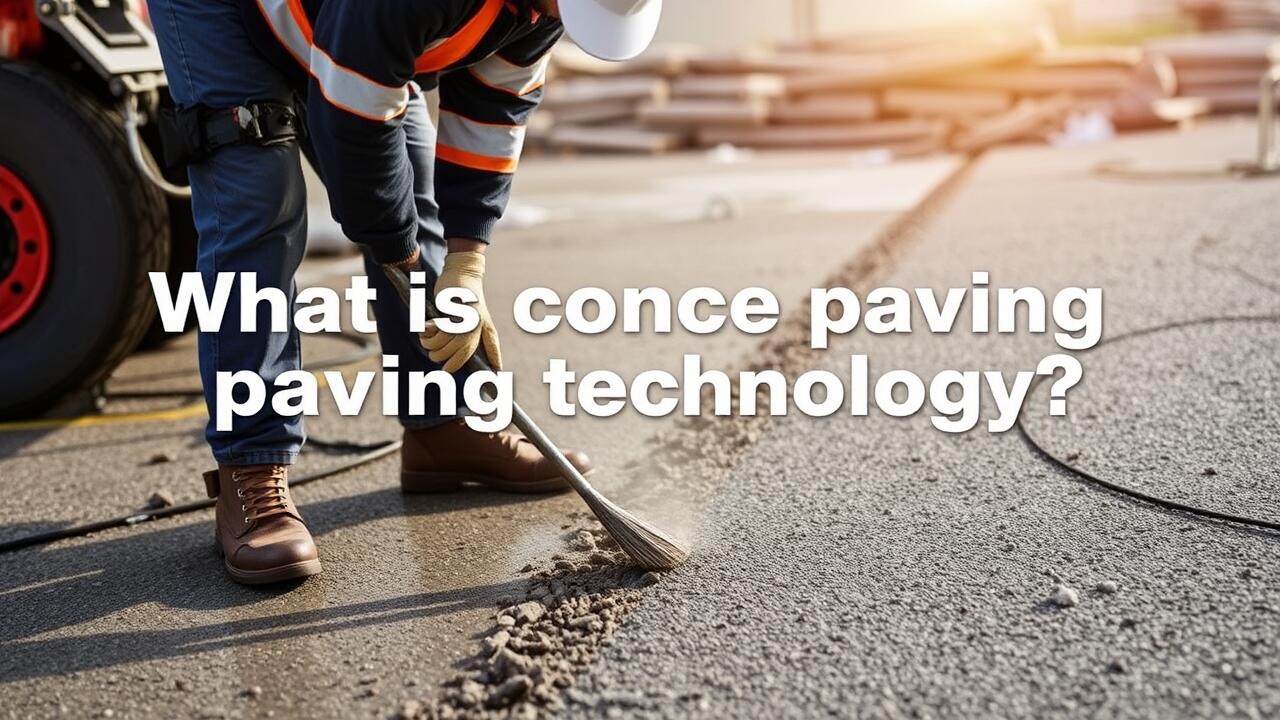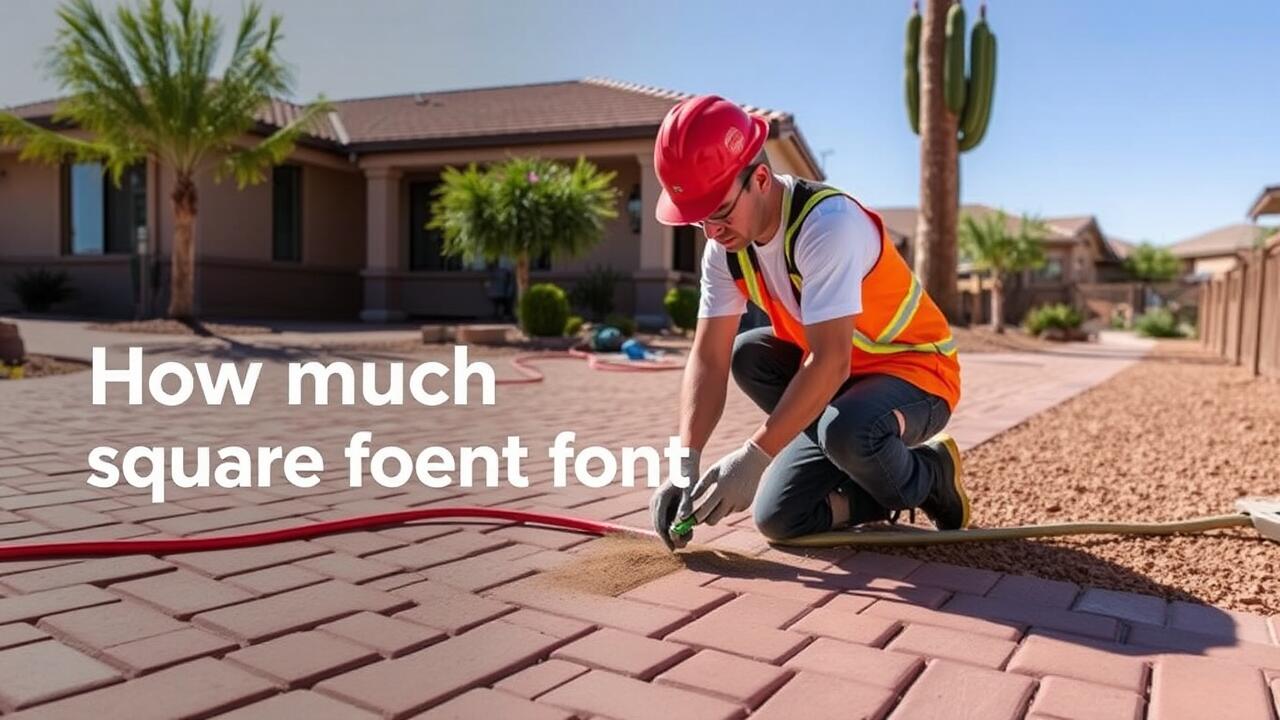
Seasonal Variations in Concrete Pricing
Concrete prices fluctuate significantly throughout the year, largely influenced by seasonal demand and weather conditions. During the peak construction season, which typically runs from spring to early fall, the demand for concrete increases. This heightened demand can drive prices up, as suppliers work to meet the needs of various projects, including residential, commercial, and infrastructure developments. In contrast, the cooler months often see a decrease in demand, allowing for more favorable pricing.
In Phoenix, the demand for concrete can also be affected by local events and construction cycles. Projects such as Concrete Paving in Encanto, Phoenix may experience price variations during summer months when the heat can limit work hours and affect the curing process. This can lead to increased labor costs and potential delays. Understanding these dynamics is crucial for budgeting accurately when planning any concrete-related projects.
How Weather Affects Concrete Demand and Costs
Weather significantly influences the demand and cost of concrete. In Phoenix, high temperatures during the summer months can lead to quicker evaporation rates which may impact the curing process. Consequently, construction and paving projects may require additional materials like retarders to manage these conditions, consequently raising overall costs. Additionally, the seasonal demand shifts with the cooler months, when more construction projects may be initiated, further affecting pricing.
Rainfall and humidity levels play a critical role as well. While Phoenix experiences dry conditions, occasional rains can delay scheduled pours, causing labor costs to increase due to rescheduling and downtime. For specific projects like concrete paving in Encanto, Phoenix, contractors may also need to consider weather forecasts to optimize their timelines and budgets. Overall, the interplay between weather patterns and concrete pricing underscores the importance of strategic planning in construction.
Alternatives to Traditional Concrete
Many homeowners and developers are exploring alternatives to traditional concrete due to environmental concerns and aesthetic preferences. Options such as permeable pavers, stamped concrete, and even recycled materials are gaining traction. These alternatives not only provide unique visual appeal but also offer practical benefits like improved drainage and reduced heat absorption. For those considering projects like Concrete Paving in Encanto, Phoenix, these choices can create a more sustainable and visually interesting surface.
The cost of these alternatives can vary significantly compared to standard concrete. For instance, permeable pavers may require a higher initial investment but can save money in the long run through reduced water runoff and lower maintenance costs. Stamped concrete might offer a lower initial price point while enhancing curb appeal. Homeowners should weigh these factors carefully, ensuring they understand both the upfront and long-term financial impacts when opting for different materials in their construction projects.
Cost Comparisons with Other Materials
When considering alternatives to traditional concrete, many homeowners and contractors evaluate the costs associated with materials like asphalt, pavers, and decorative concrete. Asphalt often presents a more affordable upfront option, typically costing less per square foot than concrete. However, asphalt surfaces may require more frequent maintenance and sealing, which can accumulate additional long-term costs. In contrast, pavers can offer a visually appealing choice and allow for easy repairs. The initial expense of pavers tends to be higher than concrete, but their longevity and minimal maintenance can provide a favorable return on investment.
In the context of Concrete Paving in Encanto, Phoenix, the choice of material can significantly impact project budgets. For instance, while a basic concrete slab may suggest a lower price point, decorative options such as stamped or stained concrete can escalate costs. However, these enhancements can elevate aesthetic value and property appeal. Evaluating the long-term benefits of each material is crucial for making an informed decision. Each option has its unique set of advantages and potential drawbacks, ultimately shaping the financial landscape of a construction project.
Additional Costs Beyond the Concrete
When budgeting for a concrete project, it is essential to consider additional costs beyond the concrete itself. These can include fees for site preparation, which may involve grading and leveling the ground. In areas like Encanto, Phoenix, local regulations may necessitate permits, adding further to the project’s overall expenses. The complexity of the job often dictates the extent and cost of preparation required.
Labor and equipment costs also play a significant role in the total price of a concrete paving project. Hiring skilled labor ensures proper installation and enhances the longevity of the surface. Equipment rental or use can significantly influence the expenses, particularly in larger projects where heavy machinery is needed. For projects like Concrete Paving in Encanto, Phoenix, understanding these additional factors helps in accurately estimating the overall investment.
Labor and Equipment Costs for Installation
Labor and equipment costs for concrete installation can vary based on several factors, including project size and complexity. In areas like Encanto, Phoenix, labor rates may be influenced by local availability of skilled workers. The cost will also depend on the specific type of work being undertaken, whether it's a simple driveway or an elaborate patio. Hiring professionals is often recommended to ensure a quality finish, which can add to the overall expenses.
Equipment rental fees can further increase costs, especially for larger projects that require specialized machinery. Heavy equipment like mixers, vibrators, and saws may be necessary for efficient installation. In the context of Concrete Paving in Encanto, Phoenix, understanding these expenses helps homeowners budget their projects effectively. Careful planning regarding both labor and equipment will ensure successful completion while minimizing unexpected costs.
FAQS
What is the average cost of concrete per yard in Phoenix?
The average cost of concrete in Phoenix typically ranges from $100 to $150 per yard, depending on various factors such as the type of concrete and local market conditions.
How do seasonal variations affect concrete prices in Phoenix?
Seasonal variations can significantly impact concrete prices in Phoenix, with demand often increasing during the warmer months, which may lead to higher prices compared to the cooler months.
What alternatives to traditional concrete are available in Phoenix?
Alternatives to traditional concrete include options like stamped concrete, permeable pavers, and asphalt, each with different costs and benefits depending on the project requirements.
Are there additional costs to consider beyond the price of concrete per yard?
Yes, beyond the price of concrete, you should also consider additional costs such as labor, equipment rental, site preparation, and any necessary permits for installation.
How do labor and equipment costs influence the overall cost of a concrete project?
Labor and equipment costs can significantly impact the overall cost of a concrete project, as skilled labor and specialized equipment may be required for proper installation, which can increase the total project budget.


